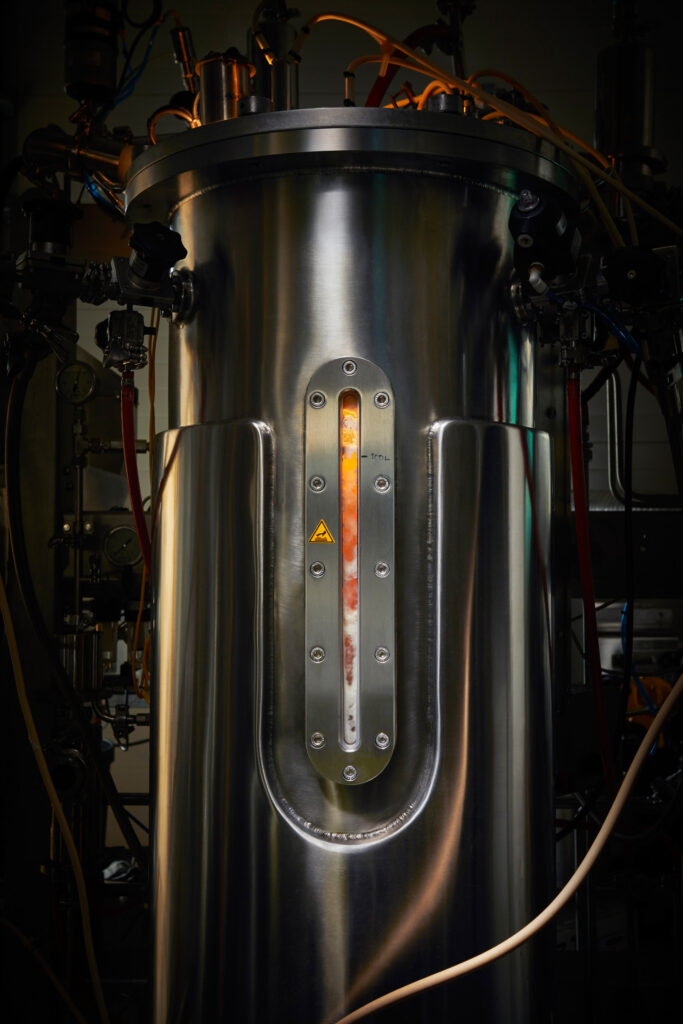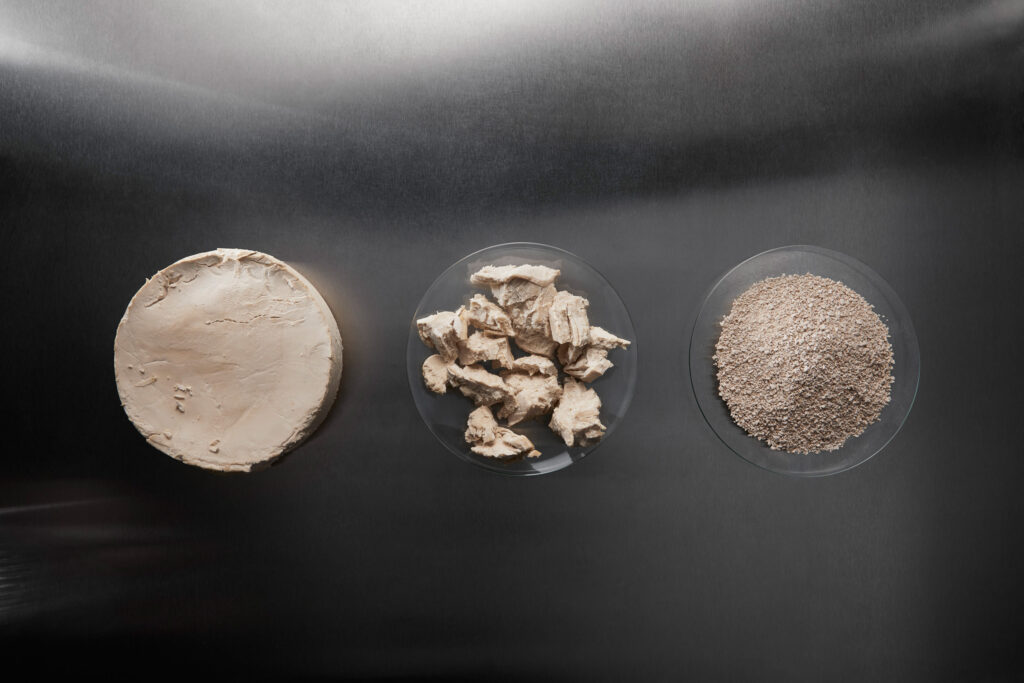Enifer Eyes Novel Food Approval for Mycoprotein in EU, Singapore & Other Markets
5 Mins Read
Finnish startup Enifer has filed for novel food approval in the EU for its Pekilo mycoprotein, and is planning applications in Singapore, the US, and the UK.
Months after closing a Series B funding round and securing loans for a new factory, Finnish mycoprotein producer Enifer is pursuing regulatory approval in several markets as it looks to accelerate its route to market.
The startup has applied for novel food approval from the European Food Safety Authority (EFSA), a first for a Nordic mycoprotein maker, and is now looking to make applications in Singapore, the US, and the UK, CEO Simo Ellilä tells Green Queen.
“Besides Europe being the natural market for the product from our first factory in Finland, we decided to compile the safety data according to the most rigorous standard, which is the EFSA,” he explains when asked why the company decided to apply in the EU first. “With that comprehensive dataset at hand, we can also file in other jurisdictions relatively easily.”
To date, Enifer has raised €50M in financing, including equity, loans and grants. This includes a €24M sum comprising Series B funding, state-backed loans, and EU grants to build a mycoprotein factory in Kirkkonummi, Finland.
Set to be completed by the end of 2025, the facility will have the capacity to produce up to 3,000 tonnes of mycoprotein annually, enough to meet the protein needs of 40,000 people in a sustainable manner – 1kg of Pekilo only emits 1.66kg of CO2e, 98% lower than beef and half as much as milk production.
Pekilo to compete with conventional proteins on price from ‘day one’

Enifer spun off from the VTT Technical Research Centre of Finland in 2020, with its five founders aiming to develop and commercialise its flagship Pekilo protein.
The ingredient is a nutrient-rich drop-in made via a submerged biomass fermentation process similar to brewing soy sauce. Originally developed in the 1970s, it made use of byproducts from the forest industry, upcycling fungi into chicken and pig feed.
But with tech advancements in the forestry sector in the 1990s, the sidestreams the fungi strain was fed on were no longer available. Enifer revived that process by adapting it to food and agricultural sidestreams to develop food-grade mycoprotein – currently, it uses lactose permeate (which is derived from the ultrafiltration of milk to separate lactose from proteins and fats) as one of its feedstocks.
The result is a fibre-rich mycoprotein powder with a neutral taste and colour with varying quantities of protein, depending on the application. Pekilo can be used in pet food (with a protein content of over 60%), aquaculture feed (up to 65% protein), and human food applications (up to 55% protein).
“The neutral colour and flavour of Pekilo make it an ingredient that’s easy to incorporate into nearly any recipe, from baked goods to alternative dairy and meat,” says Ellilä.
To prepare for launch, the company has partnered with Nutreco’s aquafeed division, Skreting, pet food giant Purina, and dairy leader Valio (for consumer products) to incorporate Pekilo into their offerings.
“Pekilo can be produced at a competitive price point, thanks to the efficient bioprocess and the use of food industry side streams as raw material,” explains Ellilä. “We aim to compete with conventional proteins, such as plant protein isolates, on price from day one.”
Enifer expects to launch in Singapore first

In the EU, any food that wasn’t consumed to a significant degree before May 1997 is considered a novel ingredient. Pekilo’s revamped process of using agricultural sidestreams instead of forestry byproducts mean it is classed as a novel food too, requiring pre-market authorisation from the EFSA.
The EU’s regulatory framework, however, is amongst the world’s most rigorous. The complexity and timelines involved have spurred many companies to look to other markets first, but recent changes are meant to make it easier for both homegrown and overseas businesses to file for approval.
“Making predictions on EFSA approval timelines is notoriously difficult. Some companies have been in the process for more than four years already,” says Ellilä. “However, EFSA has been clarifying the process in recent years, and we’ve been able to learn from some of the difficulties faced by other companies.”
He adds: “Thanks to the long, safe history of the use of Pekilo in animal nutrition, we also believe we have a particularly strong case. We believe that three years is a realistic timeline, all things considered.”
Enifer will also kickstart its efforts in the US and Singapore “as soon as technically possible”. “Filing in Singapore should happen within a few months,” Ellilä says. “A GRAS [Generally Recognized as Safe in the US] filing will take longer as the process is somewhat different.”
Asked about the company’s market launch strategy, he reveals: “Considering that regulatory approval is likely first in Singapore, we would probably go for a first limited launch in products like snack bars, where Pekilo can bring a healthy dose of protein and fibre without imparting negative off-flavours.”
The development comes as interest in fungi protein booms. While plant-based and cultivated meat startups have struggled, fermentation-derived alternative protein startups raked in nearly 30% more investment in the first three quarters of this year than they did in all of 2023. This includes a $100M Series C round for mycelium startup Meati, a $58M Series B round for mycoprotein maker Infinite Roots, and a $28M growth equity round for MyBacon producer Ecovative.



